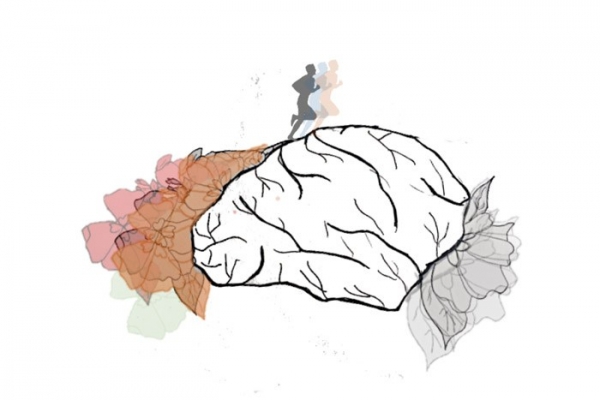When I was 16, my dream was to play soccer and run track at university, and perhaps even at the professional level. At the time, sports were my social life, my confidence booster, and my joyful escape from the stress of academics. But adolescent dreams die hard. In my third year of high school, I tore my anterior cruciate ligament (ACL), a knee injury that typically requires surgery and nine months of recovery.
Four months after my surgery, I tore the same ACL in physiotherapy. A year after that, I tore it for a third time, along with cartilage in my knee. In the span of two and a half years, I underwent four surgeries on the same knee, and my dream of becoming a collegiate athlete gradually faded away.
However, during all the time I spent feeling sorry for myself, I failed to notice my injury’s influence on my mental health. Without sports, I felt lost and dispassionate. I tried to ignore sports and focus solely on academics. I became less confident and was plagued by the trauma of my injuries.
Although mental recuperation can be just as important as physical rehabilitation, my physiotherapists and doctors never mentioned the mental aspect of sports recovery. Following a traumatic orthopedic injury, between 20 and 50 per cent of patients suffer from post-traumatic stress disorder (PTSD), while others experience emotional responses such as sadness, anxiety, and depression. Injured athletes must deal with muscle atrophy, intense pain, and frustration. In my case, I became angry and bitter. I grew jealous of others and lamented the life that I used to have, one where I won races and scored goals. I felt like a nobody, destined to fetch water bottles for my teammates.
It has been three years since my last surgery, yet my knee still gives out when I run to the bus, swells up after standing for a few hours, and grinds and clicks as cartilage wears against bone. My frustration now stems from my inability to participate in physical activity for fun, let alone for competition. I can not kick around a soccer ball with friends, ski with my family, or go on a hike. A seemingly temporary injury developed into a condition that is still pervading many areas of my life, and that, according to my doctor, I just have to live with.
Society places a lot of pressure to bounce back from disappointment but rarely discusses disappointment itself, as well as the failure to recover from it. We hear about athletes who return from an injury better than ever, but we don’t often hear about the athletes who never return to play their sport. Excluding the stories of those who have not had a fairytale ending, but who have still battled and grown along the way, overlooks their experiences and creates the unrealistic expectation that everything always works out in the end.
A small part of me will remain bitter and resentful about letting my sport go, but the experience also opened up new opportunities to explore pastimes like yoga, rowing, writing, and science—things that I doubt I would have pursued if I were a collegiate soccer player. My injuries were a harsh reminder that life does not revolve around me. I learned to be adaptable, accountable, and patient with myself when things did not go as planned. I learned to not take success or recovery for granted, and to try new things. And I learned to accept that it is okay if I do not live out all my dreams; eventually, I made new ones.








